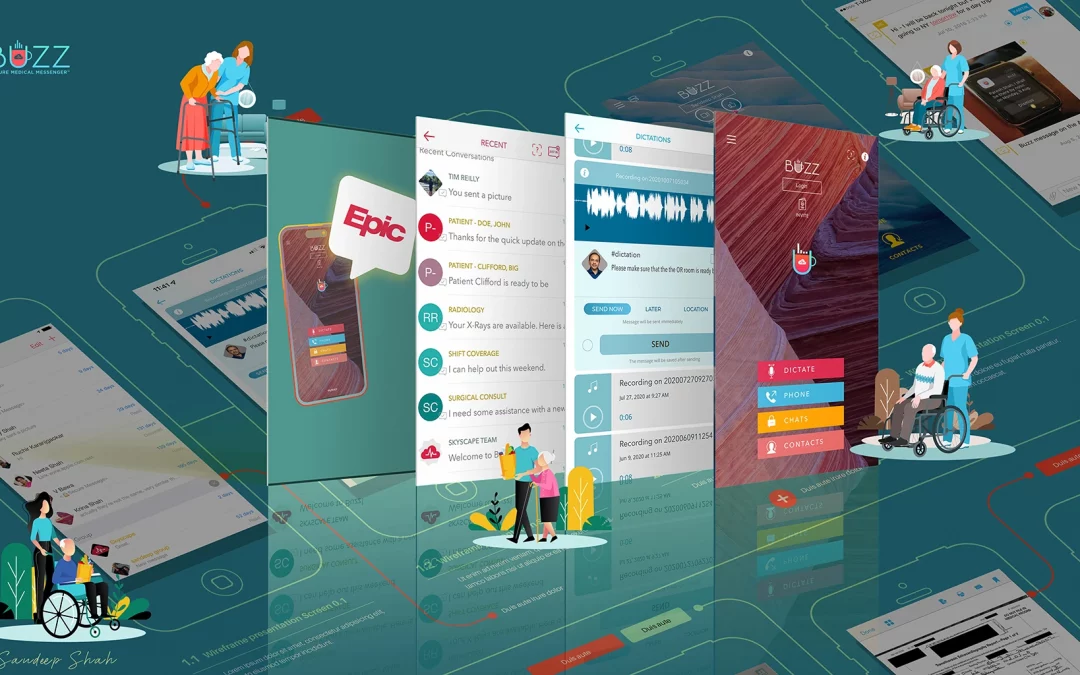In 2009, the Centers for Medicare and Medicaid (CMS), in partnership with the Office of the National Coordinator for Health IT, mandated using electronic health records to help physicians provide better care. Since then, the number of healthcare data breaches has increased steadily. In 2023, a record-breaking 725 security breaches involving over 500 records occurred in the healthcare industry alone. Still, 94% of individuals who have used telehealth to speak with their healthcare providers say they’d use it again due to convenience, expedited care, and easier access to health information.
Physicians also recognize the benefits, but many express concerns regarding data security and patient privacy. So, as a medical facility, this creates one pressing question: how can you deliver a strong communication platform for healthcare workers and patients while staying HIPAA-compliant and minimizing the risk of a breach? Here, we’ll review some key details on finding secure and customizable healthcare communication platforms.
Evaluating Your Current Communication Channels
The digital transformation within the healthcare sector can encompass a variety of components. Some facilities use messaging apps; others rely on digital platforms for record-keeping and care coordination. But when did you last evaluate and compare your needs to your current system?
Digital communication platforms aren’t a one-size-fits-all approach. They should be secure and customizable to ensure your medical professionals get the most out of their use. Two things should be considered when evaluating your current system: the effect on your patients and internal collaboration and communication.
Assess Patient Engagement and Communication
First, consider whether your current system is operating in a way that significantly reduces strain on patient care. Your patients should be able to access their health records or receive personalized health information on your network. This can help them proactively approach personal health and schedule visits or attend real-time telehealth meetings. Ideally, communication platforms for healthcare facilities should enhance overall patient experience and outcomes.
Consider Internal Collaboration
Next, consider how secure your internal messaging is. Is it equipped with end-to-end encryption? Does it follow all the rules outlined in the Health Insurance Portability and Accountability Act (HIPAA)? If yes, is it set up in a way that enhances internal collaboration? Gmail Confidential Mode, which restricts recipients from forwarding or downloading sensitive information, can also enhance email security. Integrated AI can further streamline workflows, giving physicians more time to focus on patients.
A strong communication platform should allow internal teams to set up unique workflows that can be seamlessly integrated and shared with other departments if necessary. Integrated AI can also play a pivotal role in streamlining busy work and giving physicians more time to focus on patients.
The Importance of a Strong Communication Platform for Healthcare Organizations
There are millions of patient records within the healthcare industry, all of which contain sensitive information and detailed health records. Patient confidentiality is the cornerstone of healthcare-related ethics, and there are strict regulations and laws in place to help protect it. This is why secure communication channels are so important. Some other beneficial reasons to consider upgrading your platform include the following:
- Reduce inefficiencies
- Collaborate more effectively in groups and one to one
- Aggregate patient data from imaging, labs, health history, and physicals
- Deliver timely, coordinated care
- Reduce unnecessary delays caused by communication issues
- Create better alignment between physicians on patient status
- Reduce roadblocks in workflows
- Reduce time to treatment for patients
- Allow for a complete spectrum of input from care teams in real-time
- Exchange interoperable care plans across states
- Improve continuous education and training
- Facilitate emergency response and management
- Streamline and automate administrative processes
- Strengthen compliance and audit trails
Seamless communication is extremely helpful in the healthcare industry. However, the most pressing need is to protect patient data and enhance overall cybersecurity measures. Without achieving either of these, the concept of digital communication and collaboration becomes futile.
Other Benefits of Secure Communication Platforms
Several other benefits are worth noting, as outlined below.
Lower Operational Costs
Using different types of third-party software for appointment scheduling, patient communication, internal communication, payments, and record-keeping can be expensive and cause a lot of confusion within your care team. One comprehensive communication and collaboration platform that combines a variety of essential services can reduce your overhead cost and simplify things in the process.
Optimized Staff Time
Sharing information without clutter is one of the most effective ways to optimize staff time and free up resources otherwise spent on appointment-making, record-keeping, and more. Strong communication platforms have AI automation built-in to take care of the busy work, so doctors, physicians, specialists, and nurses can focus on other tasks.
Enhanced Patient Experience
Patients communicating with their healthcare providers on digital channels tend to report a better overall experience with care. The ability to access their healthcare data from the comfort of their own home and make appointments with ease helps create a positive association with your facility. Plus, with secure text messaging appointment reminders, patients won’t miss important meetings. Improved patient experience can translate to more business and better ratings overall.
Stronger Patient Outcomes
When patients are more proactive about their health, it tends to result in better outcomes. More preventative appointments are made, and patients tend to follow up more often when it’s convenient for them. Plus, online appointments and telehealth take the stress out of visiting the doctor or hospital, so patients may be more inclined to take action without unnecessary stress.
Better Patient Connections
Several individuals who rely on telehealth and the digitized aspects of healthcare find that it allows them to connect with their physicians better than in-person meetings. This is usually due to the ease of seeing them regularly rather than sticking to a once-per-year physical. Plus, direct messaging allows patients to ask questions in real–time and feel heard by their doctor.
How to Choose the Right Healthcare Communication Platform for Your Needs
When selecting a communication platform for your clinic, hospital, medical office, or any other healthcare-related facility, including secure communication for home healthcare, you should always look for a few key features.
HIPAA Compliance
Every communication platform used in healthcare must comply with HIPAA regulations. This includes safeguards to ensure the confidentiality, integrity, and availability of protected health information. Choosing a HIPAA-compliant platform is non-negotiable for protecting patient privacy and avoiding legal repercussions.
End-to-End Encryption for Direct Messaging
End-to-end encryption ensures that messages are securely encrypted on the sender’s device and only decrypted on the recipient’s device. This level of security prevents unauthorized access and improves data privacy, even by the platform provider. This helps keep sensitive patient information confidential and protected from interception or breaches.
Two-Factor Authentication Protocols
Two-factor authentication adds an extra layer of security by requiring users to verify their identity through a second method, such as a text message code or an authentication app, in addition to their password. This significantly reduces the risk of unauthorized access, even if passwords are compromised, ensuring that only authorized personnel can access sensitive health information.
Transparency Through Audit Logs
Audit logs provide a detailed record of all activities within the communication platform, including access to patient data, message exchanges, and system changes. This transparency is crucial for accountability, allowing healthcare organizations to monitor usage, identify potential security breaches, and ensure compliance with regulatory standards.
Easy to Use
Ease of use is crucial for ensuring widespread adoption and effective utilization of the communication platform. The system should be intuitive, requiring minimal training for healthcare staff and patients. Features like straightforward messaging interfaces, easy file sharing, and accessible support options contribute to a user-friendly experience that encourages consistent use. It’s meant to make internal processes easier, not more complicated.
Convenience Paired with Security
The ideal platform should balance ease of use and robust security measures. Healthcare professionals need a system that facilitates quick, efficient messaging without compromising security protocols. Features like user-friendly interfaces, intuitive navigation, and seamless integration with existing workflows enhance convenience while maintaining high-security standards.
Scalability
A scalable platform can grow and adapt to the changing needs of your healthcare organization. Whether expanding services, increasing the number of users, or integrating new technologies, the platform should be flexible enough to accommodate growth without compromising performance or security. Scalability ensures long-term viability and cost-effectiveness.
Regular Data Backups to Prevent Loss
Regular data backups are essential for safeguarding against data loss due to system failures, cyberattacks, or other unforeseen events. The communication platform should provide automated and secure backup solutions, ensuring that all critical data is routinely saved and can be quickly restored in case of any disruptions, minimizing downtime and data loss.
Communication is key to running a successful healthcare facility, but it shouldn’t put you, your staff, and your patients at risk. To reap the benefits without the risk, Buzz offers a comprehensive HIPAA-compliant platform.
Buzz is the most powerful communication and collaboration platform for continuous care coordination. Fully compliant with HIPAA rules and regulations, your patient’s data is private and accessible to only authorized users. Whether consulting with another healthcare provider or the patient themselves, you’ll never need to worry about security. The platform combines the power of document sharing and e-signatures, Skyscape’s clinical library, and secure instant messaging app in a fully customizable, HIPAA-secure platform.

